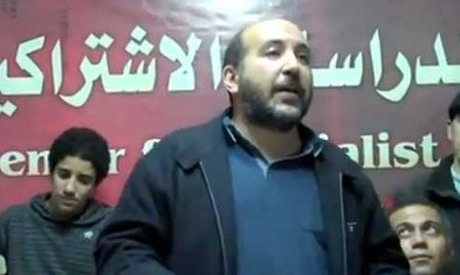Middle East
Libya's continuing struggle for democracy

An anti-militia protester gunned down on November 15,
Egyptian revolutionary socialist: ‘We are facing a counterrevolution’

Rana Nessim and Rosemary Bechler interviewed Sameh Naguib (pi
Egypt's revolution deepens in the face of state repression

Haitham Mohamedain (pictured above) is a prominent member o
Egypt’s military rulers help imprison Palestinians of Gaza

A Palestinian (right) in Rafah on the Gaza-Egypt border talks to an Egyptian s
(Updated Sept. 24) Syria: West's hypocritical war drive slowed

By Barry Sheppard
Stop the US-led war on Syria! (Updated Sept. 1)

[Below are statements from the left in Asia, from Australia, Malaysia and the Phil
Middle Eastern left: 'We stand behind the Syrian people’s revolution! No to foreign intervention!'

Statement by the Revolutionary Socialists (E




